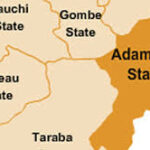Technology is impacting communities and markets in unprecedented ways in Nigeria and at such remarkable speed that sets the country apart and propels the entire African continent forward. This transformation comes with a massive commercial potential for both local and international business. As we head into 2019, these are the technologies that are driving innovation and change and their future potential.
A breakdown of the structure of Nigeria’s economy shows that the Services sector accounts for 50.25% of total output while agriculture accounts for 28.65% and industries account for 21.11. A great deal of the development of the service sector is as a result of digital connectivity; which not only increases the availability of goods and services but fosters collaboration between innovators in different places. Despite challenges, Nigeria has over 60 million potential e-consumers, presenting a great opportunity for the ever increasing list of e-commerce and digital payments startups. In the public sector we have seen how digital technologies have revolutionised vital tasks from payments to procurements.
Looking forward, I believe digital connectivity will break down more barriers between formal and informal markets and even open new markets. FinTech will definitely see a boom as there are confirmed reports of most of the telecommunication companies from MTN to Airtel and GLO all targeting(mobile) banking licences for 2019.This opportunity is largely because of the ineffectiveness of the current FinTech solutions in truly reducing financial exclusion in the country.
There is a rise of crowdfunding solutions especially in big sectors like agriculture which constitute majorly of smallholder farmers who lack access to finance. Companies that use digital technology to bridge the financial gap for smallholder farmers like Farmcrowdy, Thrive-Agric and Farmer in Suit work with the hitherto unthinkable promise of giving the working professional a window into farming while supporting the rural farmer with much needed finance; sharing the profit of the harvest at the end between the investor and the farmer. The shared economy is also booming because of digital connectivity. Ride sharing businesses from Uber to Taxify are flourishing while a crop of new companies with a fast growing user base dominate the shared commerce space. Further disruptions like these will surface in 2019 largely because of the development of the physical, telecommunication and financial infrastructure along which commercial activity flows.
In education as well as health, we have seen some disruptive use of digital technologies from companies like Flexisaf with management solutions and educational delivery of the highest standard, yielding hundreds of millions of Naira in revenue. Technologies in health will be more prevalent in 2019 especially with efforts from local and international agencies in seeing Nigeria achieve the United Nations’ Sustainable Development Goals.
Because of challenges in data collection and non-existent legacy technologies, Big Data and Analytics have not had a mark in the Nigerian technological crusade. With a massive availability and flow of data ranging from government records to election data and social media, it is likely that 2019 will usher the new-age of big data and analytics opportunities in the country. This is similar with block-chain technologies, where crypto-currencies like Bitcoin have gained global popularity and no doubt sparked a lot of interest in Nigeria. I believe Nigeria can spearhead an African blockchain revolution especially in creation and management of trusted temper-proof records in line with the country’s age-old battle against corruption. Other big opportunities lie in the financial sector for blockchain technologies.
However, digital technologies occupy only a fragment of the technology ecosystem which transcends data and connectivity. Areas like additive manufacturing, robotics, the internet of things and renewable energies are all driving innovation and change in Nigeria. For a country with a power and electrification debacle, renewable energies ranging from low-cost solar cells to wind-powered mini grids have demonstrated capacity to deliver electric power to Nigerians in a way that national grids have failed. Also, Innovations and new technologies in seeds and fertilizer production are instrumental to Nigeria’s rising agricultural productivity. Drones are popular today in Nigeria especially in multimedia but there is certainly room for their application in agriculture, oil & gas and other sectors in the near future. Perhaps 2019 is the year Nigeria will see more investment and focus from businesses and innovators on technologies beyond digital applications.
Inarguably, Nigeria’s technology sector is fostering innovation and connectivity across markets and communities alike. With the advantages of a young and rapidly increasing population, businesses, policy makers and investors must be ready to take on the challenges that still lie ahead in order to maximise the opportunities that this wave of disruption portends for the country and its people. We must work towards the even spread of the benefits of technology across the entire country; ensuring that startups and innovations thrive just as well in Lokoja as they do in Lagos. We must promote technology-driven problem solving across our unique problems whether it is desert encroachment in Katsina or it is women farmers’ access to market in Benue. Technology fuels genuine growth. 2019 will belong to those who are able to find new and better ways of unleashing its transformational capacities on our local problems.
Yammama, a tech entrepreneur, wrote in from Abuja.

 Join Daily Trust WhatsApp Community For Quick Access To News and Happenings Around You.
Join Daily Trust WhatsApp Community For Quick Access To News and Happenings Around You.


